Letter to VSB Requesting Clarification and Action on School Closures Public Consultation Process9/29/2016 [Download a PDF of this letter.]
September 29, 2016 Vancouver Board of Education Trustees Vancouver School Board 1580 W. Broadway Vancouver, BC V6J 5K8 Dear Trustees, The Parent Advocacy Network (PAN) would like to acknowledge the extensive work Trustees and staff have done thus far in the Proposed School Closure process; parents appreciate how overwhelming this situation is. However, after the September 27 release of details related to the Proposed School Closure Consultation process, several questions and concerns have come to light for which parents require clarification. Given the very tight timeline, we hope these concerns will be addressed as soon as possible so parents and community members will have a clearer understanding of the process, and so that the process has the intended outcome of allowing people to feel as though they have been adequately consulted. 1) PAN would like to understand why consultation meetings will not be held at the actual schools being considered for closure. Parents and community members understood that school-specific consultation meetings would take place at the affected schools – venues where affected families are most likely to feel comfortable at and live near. Proximity for some families will be crucial to their ability to attend. Most elementary school gymnasiums hold several hundred people, so it is clear that size of venue is not an issue. We respectfully request that trustees and staff give serious consideration to moving these consultations to the affected schools. 2) PAN also questions the choice of time for school-specific meetings. An early evening time is very difficult for parents, especially considering that most parents work outside the home. Parents cannot be expected to get home from work, pick up children from school or childcare, deal with after-school activities, and prepare dinner all before a 5PM meeting. This is especially true if they must travel outside their neighbourhood to an unfamiliar school in order to attend the meeting. We respectfully request that trustees and staff give thought to moving the start time to 6PM or 7PM for school-specific meetings. 3) Given statements made on September 26, PAN believes it is the VSB's intention to enable as many parents as possible to attend the consultations. With that in mind, for many families childcare will be an issue. Please confirm and make clear in all communications, if on-site childcare will be provided. 4) Of particular concern is the need for attendees to register beforehand to speak about their school. Many people will find this very intimidating and overly formal, and we strongly encourage staff and trustees to consider eliminating this requirement. It would seem very appropriate for attendees to have the opportunity to register on-site upon arrival, and there should be an open-mic opportunity for attendees to speak about issues or concerns that may come up for them over the course of the meeting. 5) We have heard from many parents who are confused and find it difficult to access clear information about the specifics of the consultation process; they believe they should have a specific person they can contact with questions. Who is in charge of the VSB Engagement communications, and will they be able to respond to questions and concerns in a timely manner? To whom should parents and community members direct questions and concerns prior to the meetings such as those addressed here? 6) As both schools closing and those receiving students will be affected greatly by any closure, we would ask the VSB to ensure that receiving schools have also been sent invitations to all consultation meetings. Their voices also need to be heard and, with respect, every effort should be made to ensure they too have all the information needed to actively participate in this consultation process. Many parents are unaware of the potential impacts of amalgamation on their school and should be informed if there is a possibility of losing utilized educational spaces or community programs. 7) We appreciate that translations of the consultation letters have been made available. Will translators be at the consultations to facilitate the participation of parents who do not speak fluent English? 8) We realize that this consultation process is going to be facilitated by a third party. A third-party summary cannot possibly substitute for hearing people’s very important concerns firsthand. We hope that all trustees will be present at all meetings so you can hear what people have to say. In addition, trustees should have the opportunity to pose any questions they may have directly to speakers. A strong show of interest by trustees will show everyone that VSB is just as concerned as the rest of us about the possibility of school closures. We understand that this is a very busy, difficult, and stressful time for staff and trustees. It is also a very difficult time for families and community members. We hope we can all work together to get this information clarified and disseminated to everyone in a very timely fashion. We know that you understand the gravity of these decisions and that you are committed to providing a consultation process that is as fair, open, and accessible as possible. Thank you for your prompt attention to these concerns. Warm regards, The PAN Steering Committee
1 Comment
George Heyman, MLA asked us two questions after our presentation to the Select Standing Committee on Finance and Government Services on Monday, September 19, 2016. We would really appreciate your help answering them.
[Download a PDF of this letter.]
September 23, 2016 Vancouver Board of Education Trustees Vancouver School Board 1580 W. Broadway Vancouver, BC V6J 5K8 Dear Trustees, We write today because we are deeply troubled by the process and approach the VSB is currently taking with respect to school closures. We understand the pressure to eliminate “inefficiencies” in facilities usage to secure seismic funding (despite the Minister of Education’s recent removal of a firm 95% capacity utilization target), and we understand the fiscal pressures that are driving the recommendation of multiple school closures on a much faster timeline than is laid out in the Long Range Facilities Plan (LRFP). However, we are extremely concerned that closures of this magnitude, which will have a massive and long-term impact on the provision of education within our district, are being executed without sufficient time or public input to consider the complexity of factors that affect students and neighbourhoods. Such factors include the distribution of enrolment within and outside catchment areas, the needs of vulnerable students and communities, and changes in the distribution of school-age children within the city. We urge you to halt the closure process now, and to draw up a revised proposal that better serves the long-term interests of students and communities. The Parent Advocacy Network (PAN) cannot support the process by which the current list of proposed schools for closure was created, as it did not adequately consider both Factor 1 and Factor 2 criteria as stipulated within the LRFP. This oversight has marginalized the human cost of school closure and has ignored the harmful impact of closures particularly on communities with a high proportion of vulnerable students. The data presented to justify the identification of schools for closure do not take into consideration the broader context of where students reside and how mobility patterns are impacting school enrolment. Further, the reliance on Baragar projections precludes the examination of crucial information on where students actually live – information that is essential to making decisions that must serve the long-term educational needs of the city and not perpetuate spirals of decline in some schools perceived by parents to be undesirable. Even a cursory examination of 2011 census data clearly shows that enrolment in a particular school does not necessarily correlate with population growth, stability or decline within its neighbourhood. For example, extrapolating from 2011 census data, the neighbourhood of Sunset has an elementary-school-age population of 3,148. The current capacity of schools in the area is only able to accommodate 50% of the population, and the proposed closure in this neighbourhood would decrease this to 40%. It is imperative to consider the impact on enrolment at neighbourhood schools of new schools being constructed nearby, of the location of district programs, and of choice mobility. Given the severe and long-term impact of school closures, we believe trustees should have a full understanding of enrolment patterns and neighbourhood populations – including that provided by 2016 census data, due to be released in February – before making irrevocable decisions. Parents have not been offered any alternative solutions to closure, such as the rightsizing of too-large buildings so that we may retain neighbourhood schools for viable student populations. Perhaps the Minister of Education’s recent revocation of the 95% capacity utilization target opens up such possible solutions where only recently they were perceived to be impossible. In addition to reducing surplus capacity, rightsizing would eliminate deferred maintenance costs and provide sufficient space for specialty facilities like arts rooms, and early childhood learning or after-school care to support families. Such facilities would be consistent with the vision of schools as Neighbourhoods of Learning, reflecting community needs and creating an environment for the proactive retention of local enrolment. We’ve seen no indication that the VSB has considered revising catchment boundaries where oversubscribed and undersubscribed schools lie adjacent to one another, grandfathering existing students, but better redistributing capacity needs for the long-term. We urge you to consider the public’s experience in receiving and trying to make sense of the information they’ve been given. We hear every day from parents that they are very unclear about what’s going on and why. This level of confusion has the practical effect of disenfranchising the residents of our city. It is imperative that families in Vancouver fully understand what is at stake, what is being lost, and how the losses will affect all children across the district. Almost no attention has been paid to the dozens of schools that will be affected by a large, and unpredictable influx of students. Parents of these schools have not received notification or been given voice within this process, nor is it at all clear what the definition of "reasonable accommodation" might mean in practical terms for these school populations. Moreover, there has been a failure to acknowledge the high degree of uncertainty inherent in this process. The experience of Carleton Elementary after the recent fire can be seen as a cautionary example. A thoughtful plan was communicated to accommodate the full student population at Cunningham Elementary, but things didn’t proceed according to that plan. Parents didn’t unanimously follow what was laid out, and a sizeable proportion of Carleton students scattered, creating an unanticipated strain on three nearby schools and the need to surplus a sizeable number of staff and teachers. What will be the unanticipated ripple effects of 11 simultaneous school closures that will displace 3,188 students? More concerning, how will the VSB manage the scale of confusion and trauma that will result from this many students — a large proportion of whom are already vulnerable and coping with social and emotional challenges — transitioning into unknown school environments without any “safe” or familiar adults who understand their needs and support them in through this disruption? Though PAN is not, in principle, opposed to the notion of closing schools if there is a redundancy of facilities or true population decline that’s unable to support a viable neighbourhood school, we firmly believe that public support for closures is conditional on confidence in the process and the completeness of any supporting data used. PAN has, with due respect, lost confidence in this process. The consequences of closing this many schools based on narrow parameters and a flawed selection process are so grave that we must urge you to vote NO on September 26th. We ask you to redirect VSB staff to revise their approach to encompass the contextual information needed to fully understand population needs and trends, and to create a proposal that reduces surplus capacity in ways that promote healthy communities through the retention of neighbourhood schools, utilizing a combination of creative options for rightsizing and partial repurposing. We also ask you to demand assurance from the provincial government that the VSB will receive the funds and flexibility needed to advance projects through the Seismic Mitigation Process in a timely manner that will provide safe and educationally appropriate facilities for students, to serve the needs of current and future generations. We do not underestimate the risks inherent in this decision, and the fiscal implications for delaying this process. However, the only thing worse than deciding to dismantle neighbourhood schools would be to make a decision without sufficient evidence that this is in fact the only course of action. Your vote on September 26th will determine the future of public education in this district. We urge you to resist the pressure to move to an economies-of-scale model that will see the dismantling of the progressive vision of neighbourhood schools that the Board has fought so hard to maintain. Consider the legacy of the decisions you make. Sincerely yours, Parent Advocacy Network Steering Committee While we have not been feeling the love from the provincial government — the Minister of Education continues to refuse to meet with us — this week we have felt the love from other levels of government. On Monday, September 19, 2016, MP Don Davies (Vancouver-Kingsway), called on the Prime Minister to make federal funds available to seismically upgrade BC schools. On Tuesday, September 20, 2016 City of Vancouver Councillor Andrea Reimer brought the motion "Standing Up for Vancouver's Neighbourhood Schools" to City Council. The motion requires a letter be written to the Ministry of Education requesting that the Provincial capacity-utilization requirements be amended to:
PAN Presents to BC's Select Standing Committee on Finance and Government Services on Budget 20179/20/2016 On September 19, 2016, Maggie Milne Martens of PAN presented to the Select Standing Committee on Finance and Government Services about our desire that education be a top priority for Budget 2017.
Our summary Parent Advocacy Network affirms:
We were not alone in advocating for public education. PENS and FACE also presented in Vancouver. While they will hopefully hear from many more on the importance of public education, the more the message is amplified, the more likely it is to have an impact. While the committee has moved on from Vancouver, you can still let them know how the current underfunding is affecting you, your children, and your community by sending in a written, audio or video submission or complete an online survey (deadline, October 14, 2016). (More information is available in our September 2, 2016 blog.) The Committee will issue a report in November, making recommendations to the Finance Minister for the upcoming budget. PAN was pleased to be included in Richmond Schools Stand United (RSSU)'s rally on Saturday, September 17, 2016. Great turnout of concerned kids, families and concerned community members protesting school closures (on Friday, 3 vibrant schools in Richmond were named as likely to close in June 2017) and underfunding of public education. Our Andrea Sinclair spoke on the importance of advocacy while Jen Stewart of Families Against Cuts to Education (FACE) and PAN wrapped up the rally with a talk on provincial underfunding. Update Sept 18/16: The survey is now online, please complete before OCTOBER 15.
It is fast approaching the time to sign up to speak before the Select Standing Committee on Finance and Government Services, the same ALL PARTY committee that has recommended increased funding and a review of the funding method for public education for several years. Help ensure this year is no different, in fact, assist them in giving even stronger recommendations for Budget 2017. Important dates:
To register to present at a public hearing, email [email protected] on or after 9:00 a.m. on Tuesday, September 6. All requests will be considered in the order they are received and only those received after 9:00 a.m. on September 6 will be considered. Include the names of each presenter and organization, including full contact information. The Committee will hold public hearings in the following locations (follow link to see exact times and locations):
If you are unable to present in person, you can also send in a written, audio or video submission or complete an online survey. For more details, go to their website. Update: September 23, 2016: Video recordings thanks to Simon Fraser University: Faculty of Education Thank you to all who were able to attend our "Public Education Matters" forum on Wednesday evening, including concerned citizens from Vancouver and surrounding cities, current and former school trustees, and Vancouver MLAs, both Liberal and NDP. Thank you to our co-hosts, Douglas Elementary, for sharing your beautiful newer school and the delicious concession. Thank you to our special guest speaker, Alex Hemingway of the Canadian Centre for Policy Alternatives (BC) for your informative, well-researched presentation. Finally, thank you to our moderator, Helesia Luke, a long-time education advocate who generously donated her time and knowledge. For those of you unable to attend, or those looking for more information, we have the following:
|
PANPAN updates and news, partner events, and other timely information relating to public school advocacy in and around Vancouver, BC. Archives
June 2020
Categories
All
|

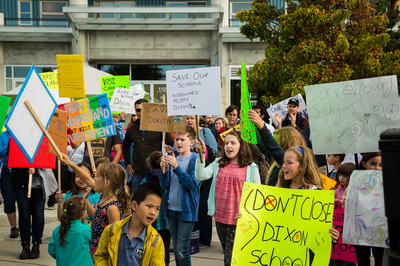
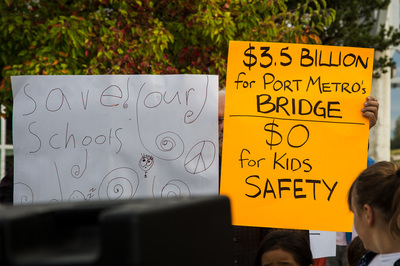
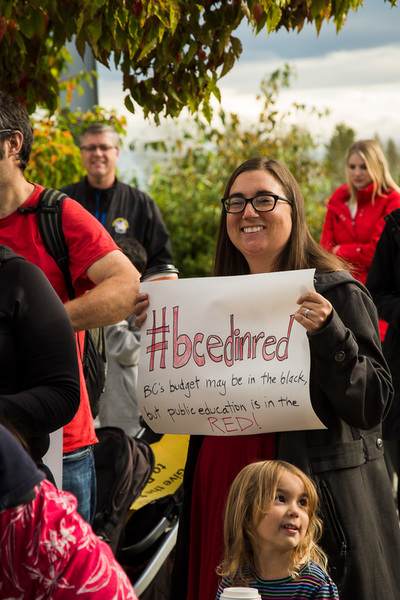
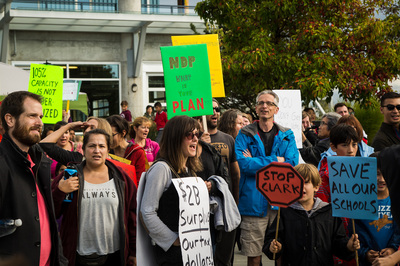
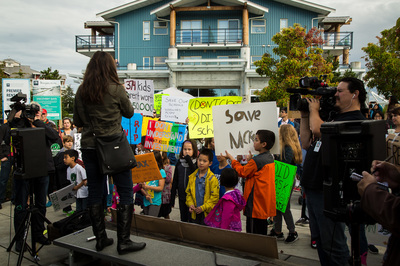
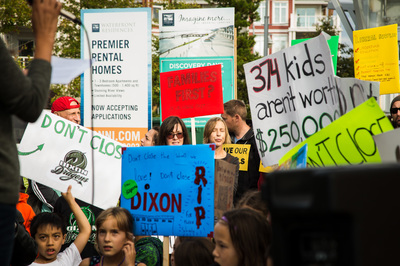
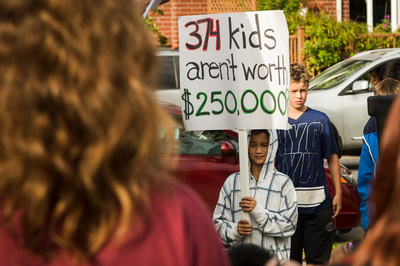
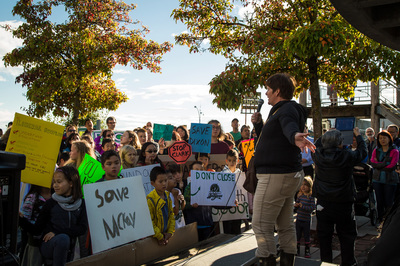

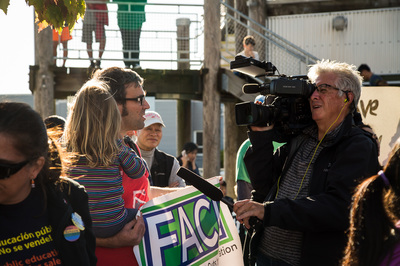
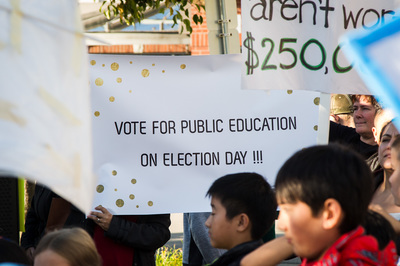
 RSS Feed
RSS Feed